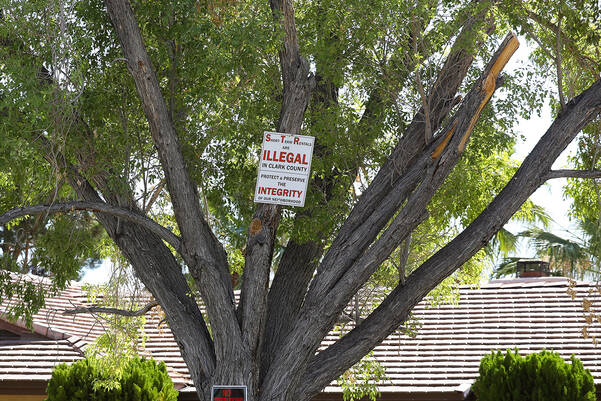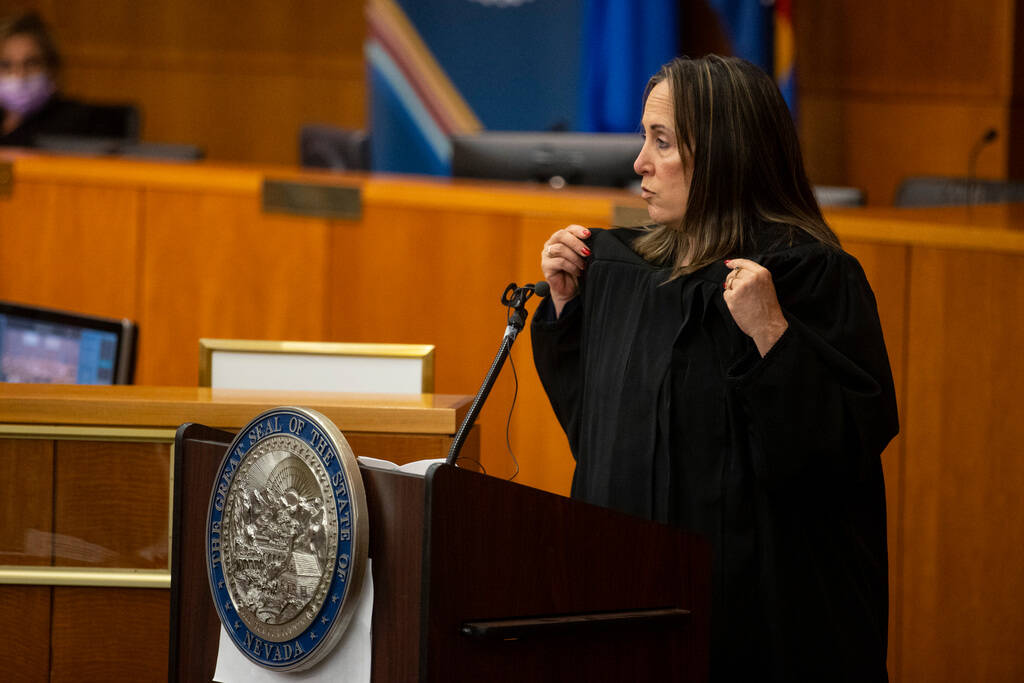Parts of short-term rental ordinance ruled unconstitutional
A Clark County District Court judge has ruled that portions of a county ordinance regulating short-term rentals are unconstitutional.
The rules in question include signing the business license application under penalty of perjury, inspections with little or no notice, vague definitions of what constitutes a “party” or a disturbance, and the issuance of “discretionary fines and penalties.”
“The Court specifically finds that certain provisions within the Ordinance are unconstitutionally vague and overbroad and fail to provide notice sufficient to enable a person of ordinary intelligence to understand what conduct is prohibited,” Judge Jessica Peterson wrote Thursday in her 20-page ruling.
Peterson granted a temporary injunction in favor of the Greater Las Vegas Short-Term Rental Association, which last summer sued Clark County and Nevada.
“Accordingly, the provisions of the Ordinance identified in this Order shall hereinafter be enjoined from enforcement and implementation,” Peterson wrote.
But the injunction doesn’t prevent Clark County from issuing licenses, a county spokesperson said in a statement. The six-month application process ends in March, and just more than 500 homeowners have applied for a license, he said.
No more hearings have been scheduled to address Peterson’s orders, which are separate from the association’s lawsuit. The county declined to comment on its possible next steps.
Regulated short-term rentals
Assembly Bill 363 legalized the practice of using homes for commercial lodging in 2021. Regulated short-term rentals already are allowed in Las Vegas, Henderson and North Las Vegas.
The law reversed a county ban on the practice, and the county set out to establish its own rules. Clark County officials have estimated that about 10,000 homes were being rented illegally in its jurisdiction.
The county ordinance set fees, enforcement plans and consequences for violating the ordinance, but the rental association has argued the rules constitute an overreach.
‘Fix this whole mess’
“We were excited to finally get the signed order,” said Jacqueline Flores, president and director of the short-term rental association. She noted that homeowners in the 1,200-member organization — which represents about 700 people in the county — already have been penalized.
The association aims for county officials “to sit down with our attorneys to fix this whole mess,” Flores said. “We can either fix it all now and get it right instead of going to court every single time.”
In her orders to grant the injunction and dismiss the county’s counterclaims, Peterson did not address the entirety of the association’s claims, which include limits to how many licenses the county plans to issue — 1 percent of Clark County’s “housing stock” — a lottery system to choose the recipients, and distance requirements between other short-term rentals and hotels.
“We always have to give Clark County the benefit of the doubt … to come to the table,” said Louis Koorndyk, co-founder of the association. “We don’t want to sue anybody.”
‘Vague and ambiguous’
Under the ordinance, applicants had to sign a “declaration under penalty of perjury” that they would abide by all of the rules.
“This mandate exposes a license applicant to the possibility of criminal liability for not only a current, but a future, violation of the Ordinance,” the court order said.
Another rule allows county enforcement to inspect homes with little or no notice.
“The plain text of these Sections means that Clark County, through its employees, may subject an applicant to an inspection of their proposed short-term rental unit, i.e., their home, without any basis whatsoever,” the order said.
The ordinance sets a limit of 10 people allowed at the homes and bans “parties, weddings, events or other gatherings which exceed the maximum occupancy of the residential unit,” the order said. “What qualifies as a ‘party’ or ‘wedding’ or ‘event’ or ‘gathering’ is vague and ambiguous.”
The ordinance banned the “emission” of noise, light, smoke, odors and hazardous materials “which unreasonably annoys or disturbs the quiet, comfort, or repose of any persons of ordinary sensibilities,” Peterson noted.
That language is vague, she wrote. “To be ‘annoyed’ or disturbed differs from person to person based upon such varying traits in personality,” the ruling said.
Contact Ricardo Torres-Cortez at rtorres@reviewjournal.com. Follow @rickytwrites on Twitter.























